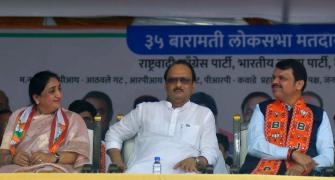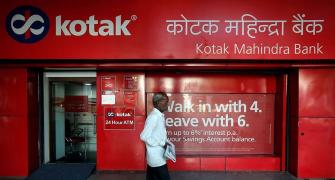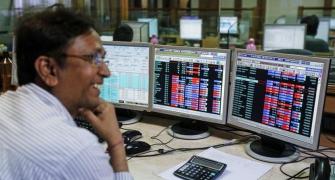Getting consensus on the US draft, it was said, would virtually be 'a done deed', a 'mere formality', as smooth as 'a knife going through butter'. A handful of dissenting member-States would express general reservations vis-a-vis the draft. After a brief discussion, Germany, the current NSG chair, would announce a 'consensus'. The US Congress would ratify the deal by September 26, and India would have its nuclear nirvana.
Yet, by all accounts, more than 20 of the NSG's 45 members expressed reservations about the deal. A vocal bloc led by Austria, New Zealand and Ireland proposed a series of amendments and suggestions to bring the waiver in line with the Group's overwhelming concern to prevent the spread of nuclear weapons. Some NSG members cited conditions from the Hyde Act, passed by the US Congress, and demanded similar terms for the waiver. US negotiators were reportedly left speechless at this. The NSG, which only works by consensus, reached no decision. The dissenters won the day.
What was meant to be the crowning of world recognition of India's arrival on the global stage is now being described as a setback and 'blow' to India, even a 'debacle'! Indian officials privately say the US didn't pull its weight in lobbying the dissenting States hard enough, or that it sabotaged the proceedings by firing from the naysayers' shoulders.
There are two problems with this proposition. One, it sits ill with the fact that the US initiated the deal and prepared the ground for it in early 2005 by publicly offering to 'help India become a world power in the 21st century.' India essentially reacted to this move, but then also drove a hard bargain knowing that Washington was keen on this deal because it saw it as the key to bringing New Delhi into the US strategic orbit and containing China.
All evidence suggests the US has been lobbying the dissenters hard, to the point of 'hammering.' It is absurd to argue that the US would sabotage the deal at this stage after having staked so much on it -- to the point of pushing Dr Manmohan Singh to break with the Left. India was deeply involved in negotiating every phrase in the resolutions brought before the International Atomic Energy Agency and the NSG -- although India isn't a member of this nuclear cartel.
It's futile for India to blame the US for the 'debacle.' It was naive, even foolhardy, for New Delhi to think that many NSG states, which only have a limited interest in partnering India, would meekly go along with Washington. In fact, it's India that proved unreasonably inflexible and unyielding.
Second, India underrated the opposition to the special NSG waiver especially from States like New Zealand and Austria which take nuclear non-proliferation and disarmament sincerely -- New Zealand to the point of barring US warships from its waters because Washington won't say as a matter of policy if any of them carry nuclear warheads.
India's credibility in matters nuclear has taken a beating since 1998 when it blasted its way into the nuclear club after having championed disarmament for 50 years and declared that it won't embrace the 'repugnant' doctrine of nuclear deterrence, or relying on an atomic balance-of-terror for security.
It's not good enough for India to offer a unilateral moratorium on testing, which can be withdrawn without notice. Many countries like Ireland, the Netherlands, Switzerland, Sweden, Norway, Finland and Denmark, besides Austria and New Zealand, probably sincerely believe that India must undertake a more robust commitment by agreeing to forgo nuclear commerce with the world in case it tests again.
These countries may yet be bullied into dropping conditions for granting India an NSG waiver. But they won't do it willingly. They will have to be coerced through crude arm-twisting by the US, or cajoled through lucrative contracts and other allurements that India may offer as an 'emerging economic giant'. But some of them don't have a big stake in Indian contracts -- and little to lose by sticking to amendments. Some may resist US pressure too.
We still don't know if the dissenters will stand up at the NSG meeting on September 4-5, although that's highly likely. But we do know that three of the conditions proposed in the first round are potential deal-breakers: First, a periodic review of India's compliance with its commitments to non-proliferation; second, explicit exclusion of uranium enrichment and spent-fuel reprocessing technologies from what can be exported to India; and most important, the stipulation that nuclear trade with India must cease if India were to conduct a nuclear test.
India insists on a 'clean and unconditional' waiver and will reject any 'prescriptive' recommendations. Nothing but minor 'cosmetic' changes in the US draft will be acceptable. So unless these conditions' authors can be persuaded or pressured into dropping or diluting them beyond recognition, India must eat humble pie, and make the best of a bad deal. Or India can walk away and lose the deal -- at least in the Bush administration's term.
Both options are unpleasant. The hazard in the second option is uncertainty about the US presidential election. If Barack Obama wins, he and the Democrat-dominated Congress will be reluctant to make generous deal-related concessions to India. During the Hyde Act debate, Obama moved an amendment calling for fuel stocks only adequate for the normal operation of Indian reactors, not to build a 'strategic fuel reserve'. Even if a Republican administration takes up the deal again, it won't offer terms as favourable as the present one.
The hazard with the first option is even more grave, being both domestic and immediate. Not only will the political opposition, from the Left to the Right, pounce on Dr Singh for violating his commitments to Parliament -- on India's 'freedom to test' and on preserving its 'strategic autonomy'. Even the United Progressive Alliance and the Congress party will find it hard to counter the charge that Dr Singh has 'sold out' to the Americans.
It is not excluded that many UPA allies and Congress leaders will turn against Dr Singh for misleading them into believing that all was well with the deal, the US would take care of the residual problems in the NSG, and above all, that there would be no political price to pay for pushing ahead with the deal -- beyond losing the Left's support to the ruling alliance and forging an arrangement with the unreliable and unsavoury Samajwadi Party.
It bears reiterating that the Congress-UPA's heart, at least that of a majority of their leaders, was never in the deal. Even Sonia Gandhi demonstrated extreme reluctance to break with the Left. The deal was thrust upon them all by Dr Singh's dogged insistence on leaving a 'legacy' of a decisive pro-US strategic and energy policy turn on India's part, much like his neo-liberal paradigm shift of 1991. In fact, the deal is integral to the larger Manmohan Singh agenda to push India rightwards socially, economically and politically.
UPA leaders didn't back the deal out of conviction, genuine respect for Dr Singh's stature and political judgment, or out of their faith in nuclear energy -- with its appallingly poor performance in India and its at-best-dubious potential contribution to India's energy security. They did so because Sonia Gandhi eventually backed the deal, though only after her son put his weight behind it.
Congressmen should realise that they are already paying a heavy price for taking the SP's support, including shielding the UPA from charges of sleaze in the 'cash-for-votes' scam, rewriting petroleum, telecom and captive coal-mines policies wholesale to favour specific business groups, and sacrificing their party's interests in Uttar Pradesh. In UP, the Congress's social base and rank-and-file are out-of-sync with, even terrified of, the SP. The Congress faces a formidable opponent in Mayawati, whose base remains intact after a year's rule.
However, the cost meter won't stop there for the UPA. If the UPA government signs the nuclear deal with onerous conditions, its credibility will be undermined. If the deal collapses, the UPA stands to become the nation's laughing stock.
All this is happening amidst runaway crises in the Kashmir valley and Jammu, eruption of communal violence in Orissa, and the home ministry's extraordinary ineptitude in dealing with terrorist attacks, for which it variously but unconvincingly blames the Students Islamic Movement of India, Gujarati youth, Bangladesh-based 'modules' and Inter Services Intelligence-sponsored outfits -- without citing concrete evidence.
Under the UPA, governance is faltering. Yet it's ducking democratic accountability by unconscionably postponing Parliament's monsoon session. As it suffers under the burden of Singh's legacy obsession, the UPA has very little time left to correct course.





